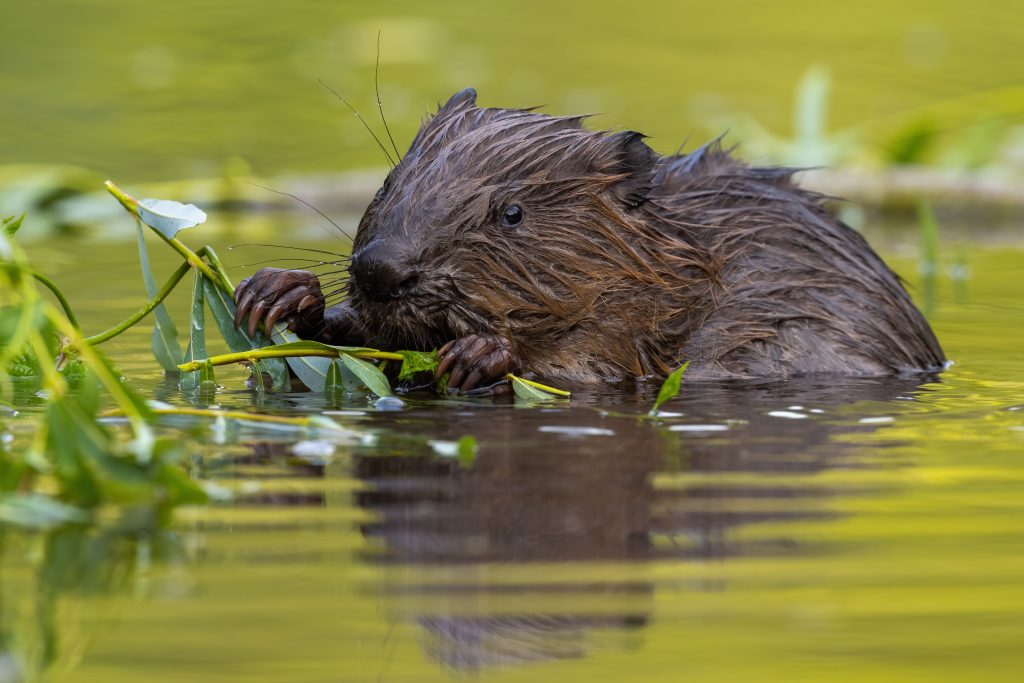Trentham submits plans to reintroduce beavers
Following the success of its reintroduction of water voles, Trentham, in Staffordshire, has submitted planning documents for a beaver enclosure with the hope to house up to four Eurasian Beavers from Spring 2023.
The 725-acre Estate has undergone a massive regeneration programme since 2003, which includes steps to increase biodiversity and re-introduce important species.
Wildlife is a vital element of Trentham’s tourism offer, which has a long-term commitment to nature conservation. Trentham boasts ancient Site of Special Scientific Interest(SSSI) woodlands which are home to historic trees and rare species. The Estate also has a broad range of habitats popular with birds, bug life, otters, deer, amphibians and reptiles.
The Eurasian beaver is a large herbivore mammal that is native to the UK and was once widespread. Beavers played a crucial role in the UK’s wetland landscapes from prehistoric times until they were hunted to extinction in the 16th century. The loss of the species also led to loss of the mosaic of lakes, meres, mires, tarns and boggy places.
Beavers are more widespread in Scotland; however their introduction needs to be carefully controlled and can be unsuitable for certain areas, e.g. those that are agriculturally intensive where they often need to moved or culled. To help prevent the culling of the important species, Trentham is offering a safe new home for relocated beavers and has a licence from Natural England for up to four.

In a bid to help re-introduce the species, Trentham is working alongside ecologist, reintroduction specialist and author, Derek Gow, who founded the Derek Gow Consultancy formed of a team of specialists in conservations, surveys, breeding and mitigation. The project is also being supported by the Staffordshire Wildlife Trust, The Beaver Trust, The Environment Agency and The Canal & River Trust.
Beavers are often referred to as ‘ecosystem engineers’ and their role in combating climate change is increasingly being recognised, as they make changes to their habitats, such as coppicing trees and shrub species, damming smaller water courses, and digging ‘beaver canal’ systems. These activities create diverse and dynamic wetlands – helping to connect floodplains with their watercourses once again. In turn, these wetlands can bring enormous benefits to other species, such as otters, water shrews, water voles, birds, invertebrates and breeding fish, as well as sequestering carbon.
In order to contain the beaver population and satisfy the controls required to try and save the species, while supporting the local agricultural community, Trentham has submitted plans for an enclosure around the perimeter of the lake and wider Gardens to keep the beavers safe and prevent them from escaping.
Alastair Budd, Senior Director of Trentham, comments: “Beavers are one of the most important species in our habitats and we want to help visitors to understand why this once extinct UK native should be back in the English countryside helping to restore our ecosystems and mitigate the impact of climate change.
“Beavers bring a whole host of positives to the environment and it is important to note that they will not cause flooding to neighboring land or change the water level on the lake. Fishing activity will not be disrupted and studies have shown beavers actually enhance and improve fish stocks. Areas of the lake used for water sport activities will not be affected and there will be no changes to how the lake or lakeside walks are currently used by Trent Water Sports Association, Anglers, visitors or dog walkers.
“If planning permission is granted this could be one of the largest beaver enclosures in England and an important place for the public to engage and learn more about the species and their vital role. We also plan to work closely with Staffordshire Wildlife Trust and local schools to help educate and inform people on their importance to the environment.”
Nick Mott, River Restoration Manager at the Staffordshire Wildlife Trust, comments: “Staffordshire Wildlife Trust fully supports Trentham’s exciting proposals to introduce beavers to a fenced enclosure. Beavers are, quite simply, ecosystem engineers: they enhance wetlands and woodlands and provide a variety of crucial habitat niches for a wide range of species from dragonflies and toads to woodpeckers and stag beetles to harvest mice and water voles.”